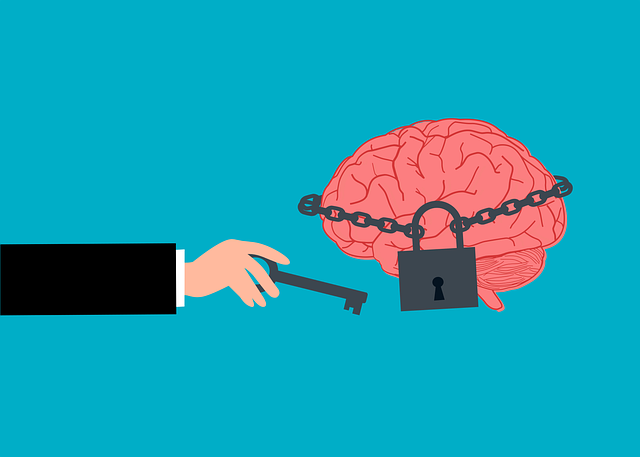Burnout among healthcare providers is a growing concern, impacting both their well-being and patient care quality. High workload, lack of control, and unclear expectations contribute to this issue, making professionals in demanding specialties or settings like hospitals particularly vulnerable. Consequences include decreased job satisfaction, increased absenteeism, higher error rates, and early departure of skilled staff, exacerbating healthcare staffing shortages. Effective prevention strategies require acknowledging these challenges. Golden Acceptance and Commitment Therapy (ACT) shows promise in mitigating burnout by fostering self-awareness, mindfulness, and values-driven actions. This therapy revolutionizes stress management through acceptance and mindfulness, preventing burnout and enhancing resilience and compassion among healthcare professionals. Integrating ACT techniques, such as cognitive techniques, behavioral interventions, self-care routines, social skills training, and regular risk assessments, can significantly reduce burnout rates and improve work environments. Cultural sensitivity in mental healthcare practice is also crucial for inclusivity and effectiveness. Healthcare organizations can enhance provider well-being by fostering open dialogue about mental health, implementing supportive practices like ACT techniques, encouraging normal conversations around stress, and establishing crisis intervention guidance.
Healthcare provider burnout is a growing concern, impacting not just individuals but the entire healthcare system. This article explores comprehensive strategies to prevent burnout among healthcare professionals. We delve into the root causes and far-reaching consequences of this epidemic, offering innovative solutions like Golden Acceptance and Commitment Therapy (ACT) for stress reduction. Additionally, we discuss mindfulness techniques, work-life balance strategies, and organizational changes needed to foster supportive environments that prioritize mental health.
- Understanding Burnout Among Healthcare Providers: Causes and Consequences
- Golden Acceptance and Commitment Therapy (ACT): A Revolutionary Approach to Stress Reduction
- Building Resilience: Mindfulness Techniques for Burnout Prevention
- Work-Life Balance Strategies for Healthcare Professionals
- Fostering Supportive Environments: Organizational Changes for Better Mental Health
Understanding Burnout Among Healthcare Providers: Causes and Consequences

Burnout among healthcare providers is a growing concern, impacting both individual well-being and patient care quality. It manifests as emotional exhaustion, depersonalization, and reduced personal accomplishment—a state often driven by high workload, lack of control over work conditions, and unclear expectations. Healthcare professionals, especially those in demanding specialties or settings like hospitals or emergency departments, are particularly vulnerable.
The consequences of burnout are far-reaching. It can lead to decreased job satisfaction, increased absenteeism, and higher rates of professional error. Moreover, it may contribute to the early departure of skilled providers from the workforce, exacerbating healthcare staff shortages. Recognizing these challenges is crucial for implementing effective prevention strategies. Golden Acceptance and Commitment Therapy (ACT), a form of psychotherapy that fosters self-awareness exercises and positive thinking, has shown promise in mitigating burnout by helping individuals accept difficult emotions, cultivate mindfulness, and engage in values-driven actions despite challenging work conditions. Support services like trauma support can also play a vital role, addressing underlying psychological stressors that may contribute to burnout.
Golden Acceptance and Commitment Therapy (ACT): A Revolutionary Approach to Stress Reduction

Golden Acceptance and Commitment Therapy (ACT) offers a revolutionary approach to stress reduction among healthcare providers, focusing on acceptance and mindfulness rather than avoiding or suppressing emotions. This therapy challenges the traditional fight-or-flight response by encouraging individuals to observe their thoughts and feelings without judgment. By fostering psychological flexibility, ACT enables healthcare professionals to navigate challenging situations with greater ease.
Integrating Golden ACT into practice involves a combination of cognitive techniques and behavioral interventions. It promotes self-care routine development for better mental health, social skills training to enhance support systems, and regular risk assessments for mental health professionals. These strategies collectively contribute to preventing burnout, ensuring healthcare providers maintain resilience and compassion in their work.
Building Resilience: Mindfulness Techniques for Burnout Prevention

Building resilience is a vital component of burnout prevention strategies for healthcare providers. This involves cultivating mental flexibility and emotional equilibrium to better cope with the demands of their profession. One effective approach gaining traction in this area is Acceptance and Commitment Therapy (ACT). ACT encourages individuals to accept difficult thoughts and emotions without judgment, fostering a non-reactive mindset. By embracing this philosophy, healthcare workers can enhance their ability to navigate challenging situations, reduce stress, and maintain patient care quality.
Mindfulness techniques, integral to ACT, play a pivotal role in resilience building. Regular mindfulness practice enables providers to stay grounded in the present moment, thereby reducing rumination on past events or worry about the future. This psychological flexibility promotes better decision-making under pressure and enhances job satisfaction. Given the high prevalence of burnout among healthcare professionals, integrating such mental health policy analysis and advocacy can significantly contribute to creating sustainable solutions for a healthier work environment.
Work-Life Balance Strategies for Healthcare Professionals

Maintaining a healthy work-life balance is essential for healthcare professionals to prevent burnout and promote well-being. Golden Acceptance and Commitment Therapy (ACT) offers valuable strategies in this regard. ACT encourages individuals to accept difficult thoughts and emotions while committing to valued actions, fostering a more balanced approach to work and personal life. By integrating mindfulness meditation into daily routines, healthcare providers can enhance their mood management skills, reducing stress and improving overall resilience.
Additionally, cultural sensitivity in mental healthcare practice plays a crucial role. Understanding and appreciating diverse cultural backgrounds enables professionals to tailor their approaches, ensuring that interventions are inclusive and effective. This holistic consideration of work-life balance, coupled with culturally sensitive practices and evidence-based therapies like ACT, can significantly mitigate burnout risks and enhance the quality of care provided by healthcare professionals.
Fostering Supportive Environments: Organizational Changes for Better Mental Health

Healthcare organizations play a pivotal role in fostering supportive environments that promote mental well-being and prevent burnout among providers. Implementing organizational changes focused on Mental Health Awareness is essential. This includes creating spaces where open dialogue about stress and challenges is encouraged, normalizing conversations around mental health, and integrating Self-Care Practices into the work culture.
Golden Acceptance and Commitment Therapy (ACT) can be a powerful tool in this context. By emphasizing values clarification and mindful acceptance, ACT helps healthcare providers navigate difficult situations with resilience. Crisis Intervention Guidance should also be readily available to support staff during high-pressure events, ensuring they have access to immediate coping strategies and resources for ongoing mental health care.
Healthcare provider burnout is a growing concern, but by implementing evidence-based strategies, we can mitigate this crisis. The article has explored various approaches, from understanding the root causes and consequences of burnout to innovative therapies like Golden Acceptance and Commitment Therapy (ACT). Building resilience through mindfulness techniques and fostering supportive work environments are also key. By adopting these strategies, healthcare organizations can enhance their professionals’ well-being, ensuring a more sustainable and compassionate healthcare system for all.











